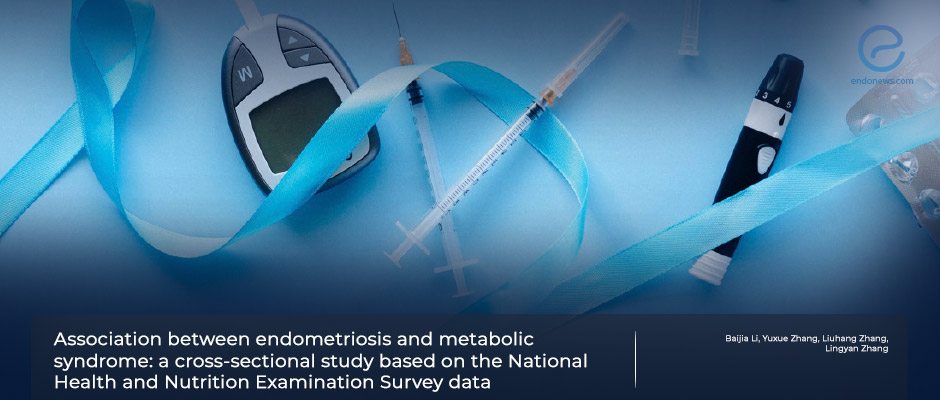Endometriosis Associated With Metabolic Syndrome
Sep 28, 2023
A study in more than 2000 women suggests that there is a link btween endometriosis and metabolic syndrome.
Key Points
Highlights:
- Endometriosis is associated with metabolic syndrome.
Importance:
- Women with endometriosis should be closely monitored to decrease their risk of metabolic syndrome.
What’s done here:
- This is a cross-sectional study based on the National Health and Nutrition Examination Survey (NHANES) comprising 2389 women.
- A total of 177 endometriosis patients were compared to 2212 in the non-endometriosis group by multivariate logistic regression analysis.
Key results:
- The risk of metabolic syndrome was higher among women with endometriosis compared to those without the disease.
- Endometriosis was associated with high levels of triglycerides.
Limitations:
- This is a cross-sectional study and cannot infer a causal relationship between the two conditions.
- Endometriosis was not diagnosed surgically.
- NHANES is a population-based program in the US and the findings may not apply to other populations.
Lay Summary
There seems to be a link between endometriosis and metabolic conditions, according to a new study published in the scientific journal Gynecological Endocrinology. This finding suggests that close attention should be paid to metabolic conditions in women with endometriosis and blood lipid levels should be monitored to decrease the risk of metabolic syndrome in these women.
Even though the link between endometriosis and metabolic conditions such as high cholesterol and diabetes was known, no studies explored the association between the disease and metabolic syndrome, a cluster of conditions that occur together, increasing the risk of heart disease, stroke, and type 2 diabetes.
In the present study, a team of researchers from China led by Dr. Lingyan Zhang analyzed a total of 2389 women to assess the possible link between endometriosis and metabolic syndrome. Of these, 177 had endometriosis, while the rest did not.
The results showed that endometriosis was associated with higher odds of metabolic syndrome after adjusting for age, ethnicity, education level, family poverty to income ratio, smoking, age at first period, previous pregnancy, menopause, use of hormonal contraception, and use of use cholesterol medication.
When they also adjusted for hysterectomy or oophorectomy, the researchers found a similar association. However, this was not statistically significant.
Moreover, they found that endometriosis was associated with high levels of triglycerides.
They said that future research should focus on the effect of endometriosis on metabolic syndrome.
Research Source: https://pubmed.ncbi.nlm.nih.gov/37673102/
endometriosis comorbidities metabolic syndrome

